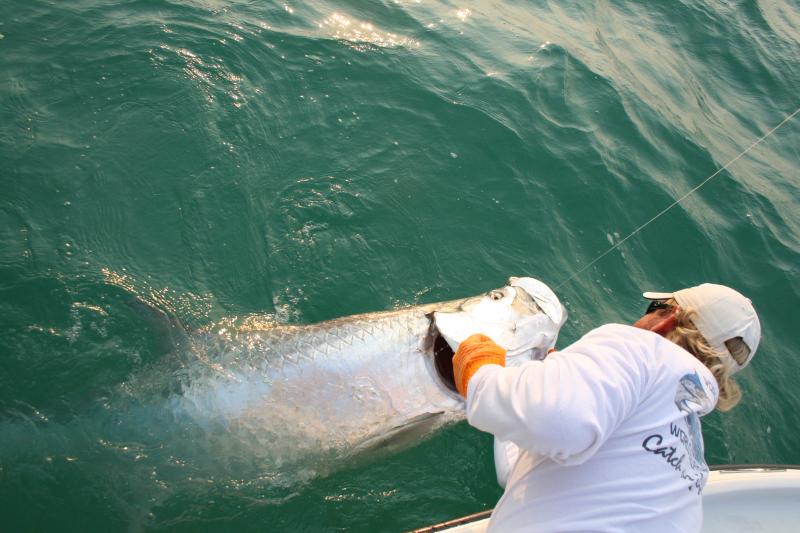Why not try something new in 2025?
We have a bright new year ahead of us, and while it has started out with subfreezing temperatures, deep snow, and frozen lakes and ponds, all of that will pass, and we will be fishing again before you know it.
Surf-fishing is my favorite, but I will also fish from a head boat, the fishing pier at Cape Henlopen State Park, the sidewalk at Indian River Inlet, with my son Ric out of Virginia Beach, with my son Roger out of Shark River, N.J., and with anyone who has a boat and asks me to join them.
I enjoy fishing different places for different species. I have had the opportunity to fish in some very interesting locations due to my occupation as an outdoor writer.
I traveled to Panama and fished for black marlin and Pacific sailfish out of Tropic Star Lodge. I have been to the Florida Keys several times and caught Atlantic sailfish, tarpon, and lots of blackfin tuna and dolphin. I have fished the Santee-Cooper lakes for striped bass and blue catfish. Each adventure was lots of fun and a new learning experience.
If you only fish in one place for one or two species, why not change up and try something different in 2025?
Let’s say you fish out of Indian River Inlet for flounder and run out to B Buoy and the Old Grounds every weekend. By now, your GPS is loaded with spots where you have caught flounder, and by going to each one, you can catch a limit on most trips.
How about instead of running to B Buoy and the Old Grounds, one weekend try going out to Massey’s Canyon, and trolling for tuna and dolphin? You will have to use some heavier tackle, at least a pair of 3/0 class outfits. Add some new tackle, a couple of Joe Shute lures and a few cedar plugs. If your boat has outriggers, double that order and add a pair of 4/0 outfits. Once you learn how to set out your lures and how fast to troll, you will be off to the Baltimore Canyon and fishing for marlin.
Say you don’t have a boat. No problem. Try fishing on a head boat. Head boats are the most economical way to get out on the ocean or Delaware Bay. I have been fishing on head boats since I was in high school, and I have enjoyed every trip. Of course, my enjoyment has varied with the weather and the catch.
Delaware has head boats that run from Bowers Beach, Lewes and Indian River Inlet. I have fished from each port and find each operation more than satisfactory.
If you are new to head boat fishing, make sure your tackle is up to the task. Don’t bring anything that can’t handle 8 to 10 ounces of weight. You don’t want your rig to get away in the current or have a spiny dog shark run all over the ocean and tangle up a half-dozen of your fellow fishermen.
The mates will make or break your head boat trip. If they are right there when you have a tangle or need help landing a big fish, tip them accordingly. If they stay in the cabin and only show up at the end of the trip with their hand out, do the same.
If you want to get away for some warm weather and some different type of fishing, I recommend the Florida Keys. You can drive there in a couple of days or fly into Miami in a couple of hours. I strongly suggest you reserve a room and a guide before you travel down. Guides usually fish early in the morning or late afternoon. Let them know how you want to fish – fly, artificial lures, live bait or whatever. I suggest going with whatever the guide says is working right now. You have traveled quite a way and spent a good deal of money, so why make catching a tarpon more difficult than it already is?
Of course, tarpon are not the only fish in the Keys. There are blackfin tuna, bonefish and permit.
Bonefish require a stealth approach and a quiet presentation of a live shrimp. You will be in very shallow water, and when the bonefish takes off on his first run, you won’t believe how fast the line comes off your reel.
I have never caught a permit, but I understand the approach is somewhat like catching a bonefish.
Blackfin tuna are found in deeper water and will hit a flying fish or lures. These are suspended from a kite and bounced from wave to wave. The strike is very exciting. Then the mate cranks out about a mile of slack before handing the rod to you. Definitely something new.
























































